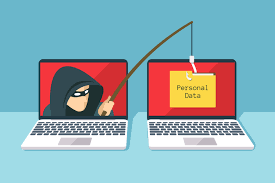Six: Avoid Overweight-Bag Fees. Many of the major U.S. airlines recently raised their baggage fees, and an overweight bag can cost you an extra $100.
六:避免超重托運(yùn)費(fèi)用。美國(guó)許多主要航空公司最近都提高了行李費(fèi),一個(gè)超重的行李可能會(huì)讓你多花100美元。
If you're not sure whether yours will make the cut, pack a few of your heavier items in a tote bag, then pack the tote at the top of your suitcase.
如果你不確定你的行李是否符合要求,那就把一些較重的物品放在一個(gè)大手提袋里,然后把大手提袋放在行李箱的頂部。
If your luggage tips the scales, you can simply take the tote bag out and carry it on as a personal item.
如果你的行李超重了,你可以把手提包拿出來(lái)作為個(gè)人物品隨身攜帶。
Seven: Delete These Texts Immediately. You know you shouldn't open emails or answer phone calls from people you don't know.
七:立即刪除消息。你知道你不能打開(kāi)陌生人的郵件或接聽(tīng)陌生人的電話。
This helps you avoid phishing, a scamming tactic used to trick people into revealing confidential information about their bank accounts, credit cards, or other personal accounts.
這會(huì)幫助你避免遭遇網(wǎng)絡(luò)欺詐。網(wǎng)絡(luò)欺詐是一種欺詐的策略,它會(huì)欺騙人們泄露他們的銀行賬戶、信用卡或其他個(gè)人賬戶的機(jī)密信息。
Now you also need to be wary of "smishing," phishing attempts conducted over SMS (short message service, better known as texting).
現(xiàn)在你也需要提防短信欺詐。它是通過(guò)短信進(jìn)行的網(wǎng)絡(luò)欺詐行為。

In particular, if you get a text from an "acquaintance" you've never met, from your bank asking you to confirm your account,
尤其是,如果你收到一條你從未見(jiàn)過(guò)的“熟人”發(fā)來(lái)的信息,或銀行要求你確認(rèn)賬戶的信息,
or from a contest you didn't enter informing you that you've won a prize, delete it immediately.
或是一條你沒(méi)有參加的競(jìng)賽給你發(fā)來(lái)獲獎(jiǎng)的消息。立即刪掉這個(gè)消息。
And never click on links sent by text from people you don't know. They could infect your phone with malware.
而且永遠(yuǎn)不要點(diǎn)擊陌生人發(fā)來(lái)的短信鏈接。他們會(huì)用惡意軟件感染你的手機(jī)。
Eight: Prevent Streaky Windows. Your mother might have taught you that cleaning windows with newspapers would make the glass shiny and streak-free.
八:如何擁有沒(méi)有污點(diǎn)的窗戶。你媽媽可能教過(guò)你,用報(bào)紙擦窗戶會(huì)使玻璃閃閃發(fā)光,沒(méi)有殘留污點(diǎn)。
While it's true that newsprint doesn't leave lint behind the way paper towels do, it can tear easily if oversaturated and doesn't pick up dirt and residue well.
雖然新聞紙確實(shí)不會(huì)像紙巾那樣留下絨毛,但如果過(guò)飽和,它很容易撕裂,而且不能很好地吸附灰塵和殘留物。
For a surefire way to get spotless windows, dilute rubbing alcohol or vinegar 50/50 with water, dab the mixture onto a microfiber cloth, and wipe away grime.
為了確保窗戶一塵不染,可以將水和外用酒精或醋對(duì)半稀釋,將混合物輕拍在超細(xì)纖維布上,然后擦拭污垢。
Nine: Never Waste Ketchup Again. Instead of furiously shaking the bottle only to produce an enormous ketchup blob, a Heinz spokesperson told Today,
九:不要再浪費(fèi)番茄醬了。亨氏的一位發(fā)言人告訴《今日美國(guó)》,與其瘋狂地?fù)u晃瓶子只出來(lái)一個(gè)巨大的番茄醬團(tuán),
hit the bottle where the neck starts to narrow. The ketchup will come out more quickly and smoothly.
倒不如敲擊瓶頸開(kāi)始變窄的地方。這樣番茄醬會(huì)更快更順滑地流出來(lái)。












